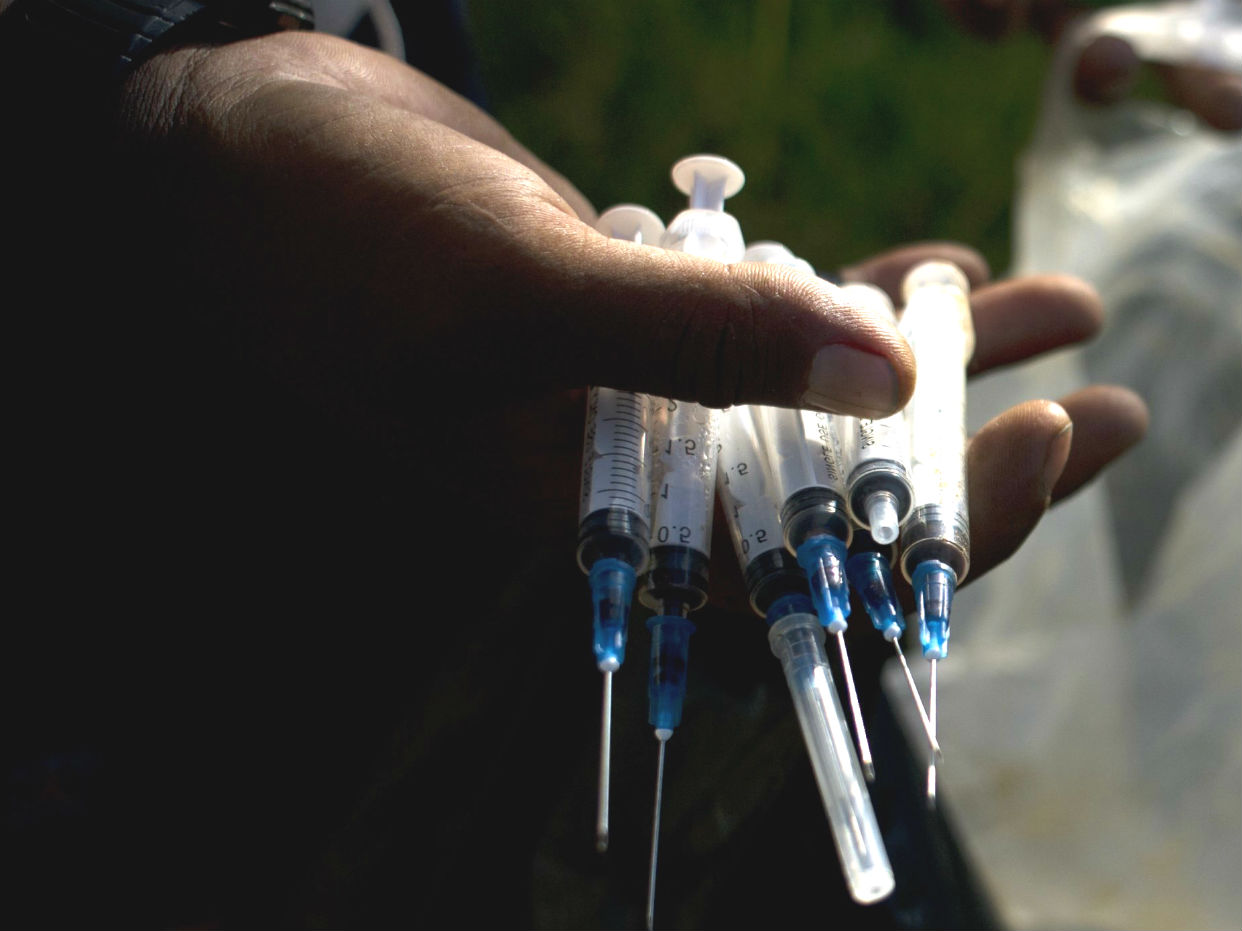Why police are backing scheme to give heroin to addicts
Chief probation officer says providing daily doses of diamorphine can reduce drug-related deaths and crime

A free daily email with the biggest news stories of the day – and the best features from TheWeek.com
You are now subscribed
Your newsletter sign-up was successful
A scheme that sees heroin addicts given free supplies of the Class A drug in an effort to reduce reoffending has been backed by the chief inspector of probation.
In a newly published report on probation in the Northeast, Justin Russell says that a “drug-assisted treatment” pilot launched last year in Middlesborough by the police and crime commissioner could save the NHS and other services tens of thousands in treatment and crime costs.
“Research found that the detected offending of 20 individuals who met the proposed criteria for the Heroin-Assisted Treatment scheme over a 24-month period cost society £784,890 – the equivalent to £5.58 per head of population in Middlesbrough,” the report says.
The Week
Escape your echo chamber. Get the facts behind the news, plus analysis from multiple perspectives.

Sign up for The Week's Free Newsletters
From our morning news briefing to a weekly Good News Newsletter, get the best of The Week delivered directly to your inbox.
From our morning news briefing to a weekly Good News Newsletter, get the best of The Week delivered directly to your inbox.
A total of 11 of the offenders have taken part in the programme, the first of its kind in the UK, The Telegraph reports.
The addicts make twice daily visits to a clinical facility, where they inject themselves with pharmaceutical-grade heroin - known as diamorphine - up to three times a day “supervised by health staff”, according to the newspaper.
The probation report says that “once their drug use is under control, they spend time with specialists from other agencies to help them rebuild their lives and reintegrate into society”.
–––––––––––––––––––––––––––––––For a round-up of the most important stories from around the world - and a concise, refreshing and balanced take on the week’s news agenda - try The Week magazine. Start your trial subscription today –––––––––––––––––––––––––––––––
A free daily email with the biggest news stories of the day – and the best features from TheWeek.com
Putting an individual through the scheme costs about £12,000, The Guardian reported in October, prior to the launch of the pilot.
“The coalition of groups behind it – including South Tees Public Health and Tees and Wear Prison Group – have said this represents a fraction of the cost their drug misuse places on the criminal justice system, health service and other public services,” according to the newspaper.
The 11 participants in the pilot had previously carried out a total of 900 crimes at a cost of £3.7m to society, says The Telegraph.
Barry Coppinger, the police and crime commissioner for Cleveland, said: “We are the first area in the country to launch such a scheme.
“It recognises that if you simply arrest and lock up entrenched street heroin users they will continue to offend on release, probably until they die and at great cost to residents, businesses and local public services.
“[The scheme] treats addiction as an illness and the results so far have been extremely encouraging.”
Until 1967, about 1,000 people dependent on heroin were prescribed diamorphine under the auspices of what was known as the “British System”. However, that scheme was brought to an end when authorities moved away from a public health approach to dealing with addiction, in favour of heavy criminal sentences for drug use.
According to online information service DrugWise, a total of 268,390 adults in England were in contact with drug and alcohol services between 2017 and 2018.
-
 Corruption: The spy sheikh and the president
Corruption: The spy sheikh and the presidentFeature Trump is at the center of another scandal
-
 Putin’s shadow war
Putin’s shadow warFeature The Kremlin is waging a campaign of sabotage and subversion against Ukraine’s allies in the West
-
 Media: Why did Bezos gut ‘The Washington Post’?
Media: Why did Bezos gut ‘The Washington Post’?Feature Possibilities include to curry favor with Trump or to try to end financial losses